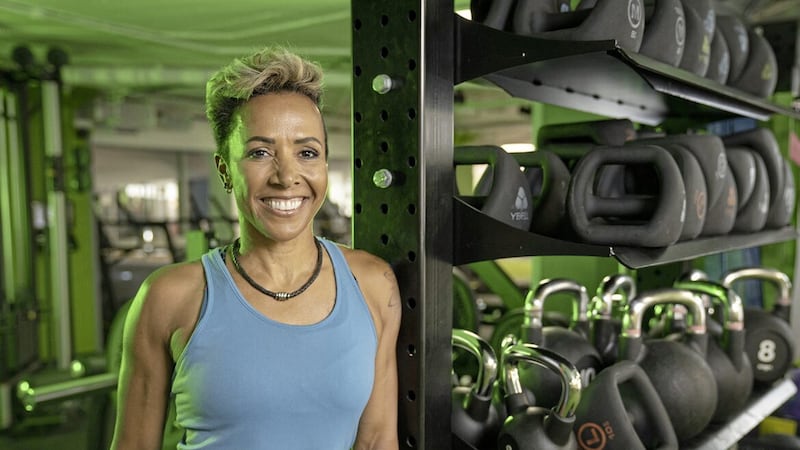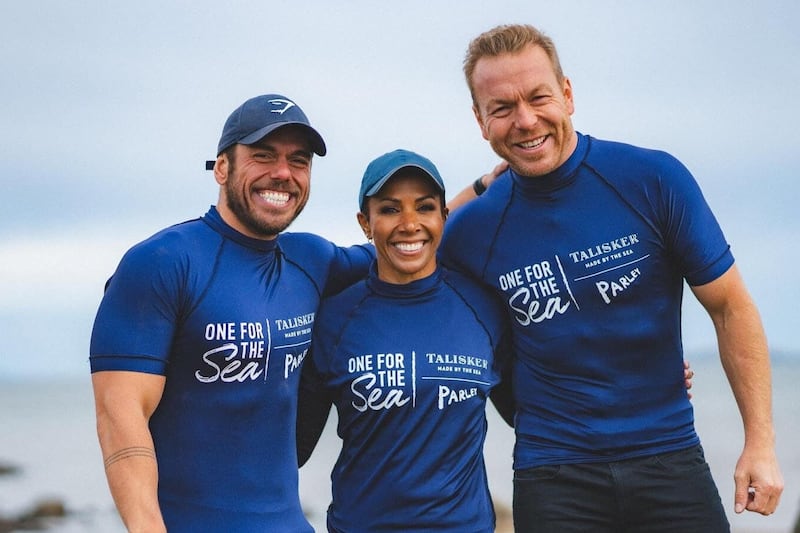AS MANY of us vow to kickstart the New Year by getting fitter, Kelly Holmes says the secret to achieving what you want in 2023 could simply be more self-belief.
"I think people could make critical changes to their fitness and the way they look and the way they feel if they believed in themselves a bit more," says the double-Olympic champion.
"I believe a lot of people don't realise how far they could get, people sometimes don't push themselves hard enough. Our bodies are a miracle, really, and we can do a lot more as long as we look after them."
The 52-year-old doesn't believe in resolutions, though.
"No one keeps them," she reasons.
"I do believe in a time to make those fundamental changes and kickstart your year on a positive."
She adds: "My New Year's ambition is to be the healthiest I can ever be – that means body and mind. I want it to be a really good year for me, because it hasn't been great over the years."
Partly, that means running again. Holmes – who retired from professional athletics in 2005 after doing the historic double, taking Olympic gold for Great Britain in both the 800m and 1500m in Athens – has suffered a myriad of injuries in the last few years, and hasn't been able to run since a calf tear last March.
"It's really critical for me and my wellbeing to get back to doing what I'm good at, and that is running – at any level."
Holmes was a fitness instructor in the Women's Royal Army Corps before her illustrious career as a middle distance runner, so she knows more than most about how to get bodies into peak physical condition. But she understands it's not one-size-fits-all.
"Everyone's history and relationship with exercise is very different. So it's about going by your means and not putting yourself off before you've started. But knowing that you can keep progressing and knowing that everyone starts from somewhere," she says.
"I have the mentality that physical fitness and mental fitness are absolutely in sync – mine is. I think people have to move their bodies to feel good."
Plus, our bodies perform better when we feel good, Holmes adds: "If we have a more positive attitude to doing something, we will do it more regularly, we will prioritise our fitness. The hardest thing is the brain telling you, 'No, can't'. But the more you make excuses, the worse you end up feeling.
"A lot of people say they can't run, but if you can put one foot in front of the other, and it's faster than a walk, then you're a runner – simple as that. How fast you run depends on the training that you do and your ability to maintain health."
She suggests we ask ourselves: "What's your ultimate goal? What is it that you want to do to make yourself feel better?"
But Holmes knows as well as anyone that you can be as physically fit as can be, yet struggle enormously mentally.
"I had a lot of mental health issues during my athletics career," she says.
Often she'd explain it away as being injured or not well, "but of course, it was other things going on in my life as well".
Holmes came out publicly as being gay in June 2022. Feeling like she had to hide her sexuality for more than three decades had a huge impact on not just her mental health, but her physical health.
"Everything I went through and the pressures in my own health, in my own being, for 34 years did not help, and has not helped, with my body," Holmes shares.
"Mental health is a massive issue amongst the LGBTQ+ community because not having that freedom to be you is debilitating. I've struggled with it my whole life. People struggle every day, and no one deserves to struggle just because of who they happen to be."
Although family and friends have known Holmes is gay since 1997, until 2000 it was illegal for gay, lesbian and bisexual people to serve in the British Army, Royal Navy and RAF, and she was terrified she would face repercussions for breaking that law during her time in the forces. Even her double Olympic gold win was marred with fears someone would 'out' her.
"It's actually had a big impact on my body, the stress that I really got to in the last two years, and I've struggled hugely," Holmes explains.
"Everything seemed to coincide – with two operations on her Achilles, a back injury, suffering from Covid twice. I think it was because I was so stressed from everything that was going on in my head. I've just not been a happy person and I think it really showed itself in my body," she shares, of the impact on her physical health.
"It's not good to be under so much pressure and have so much anxiety and worry in your life. It's no good for anybody; it stops your sleeping habits, it ruins the way you nutrition yourself. You kind of give up on things, you don't think about yourself enough.
"If you don't take the time for yourself, you don't switch off your brain, because your brain is constantly having narratives that aren't good for you."
While she was in the Army and then training hard as a professional athlete, there was a distraction from the emotional turmoil: "My brain had other things to think about – I could just carry on," says Holmes.
"But over the years since retiring, of course, you don't have that same distraction, because you're starting to think about real life and how that impacts."
Since coming out publicly though and the release of her ITV documentary, Kelly Holmes: Being Me, "I've just been able to relax," she says.
"I'm able to properly articulate my feelings a lot better and how the impact of that has affected me physically and mentally. I'm much happier than I've ever been.
"Now I'm starting to think, 'Right, now it's time to just heal the body and the mind'. Talking about my journey, talking about who I am as a person, what I've achieved, but also humanising it and normalising it to say, 'Yeah, I'm just somebody who had a real good talent but actually has been through these struggles and, through resilience, hasn't given up and doesn't want to give up'.
"I think that goes for a lot of people, from any walk of life, who feel under pressure, maybe undervalued or stressed through home life, financial worries, relationships. And then looking at themselves and feeling down, knowing their health isn't as good, constantly thinking, 'I need to train, I need to get better, I need to eat better', but you don't do anything about out it."
Instead, Holmes adds, we need to be saying: "'Right, OK, no more talking about it, I've got to do it' – because no one will get better if they don't actually make those changes. Including myself."








